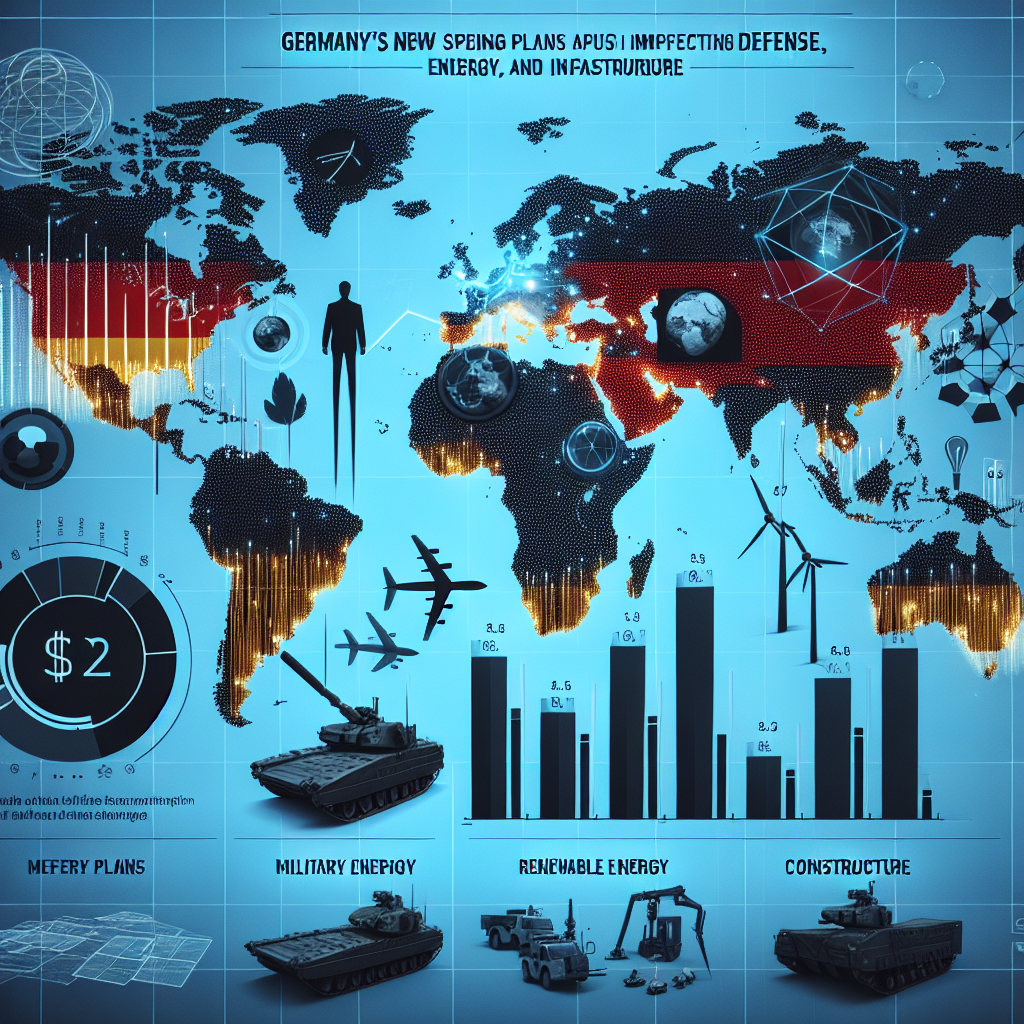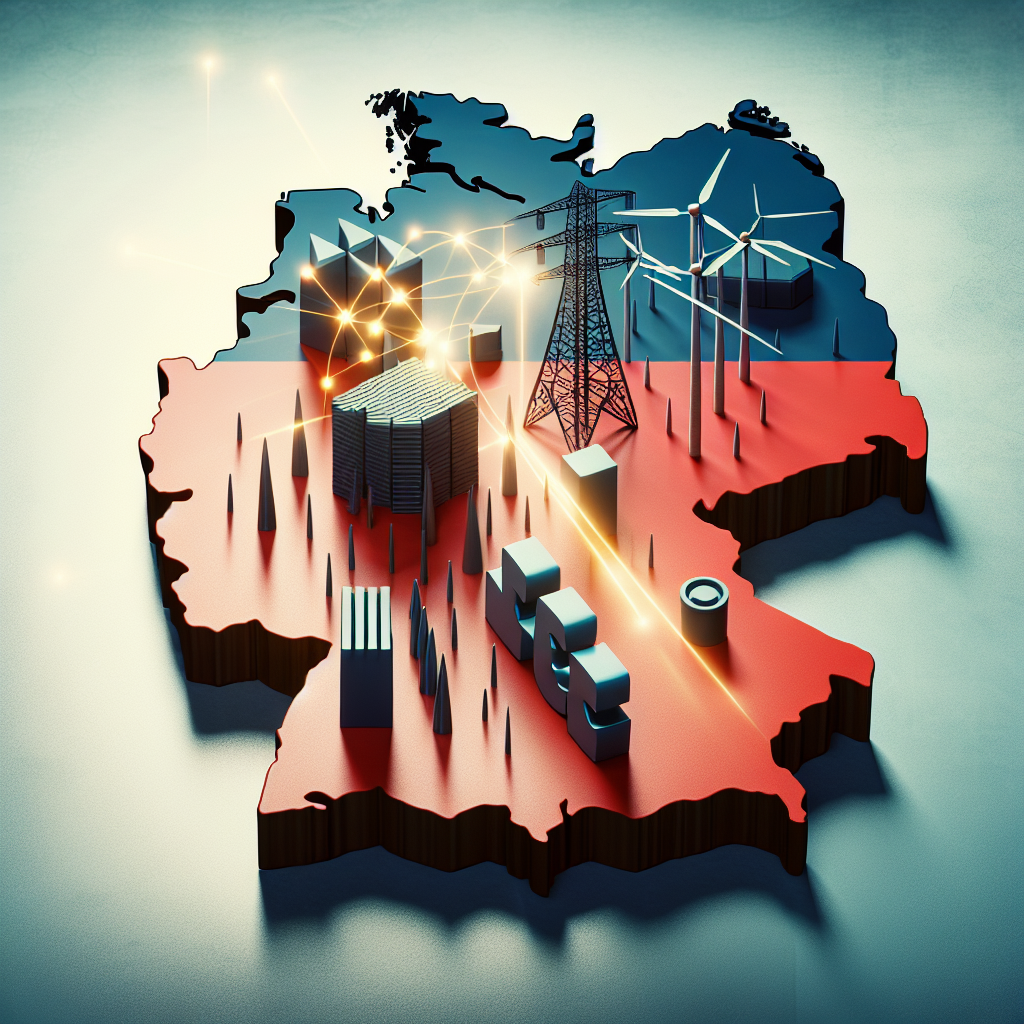Germany’s Bold Spending Plans: A Strategic Message to Global Powers
In a world increasingly defined by geopolitical tensions and economic uncertainty, Germany has taken a bold step forward. The nation’s recent spending plans, which include significant investments in defense, energy, and infrastructure, are not just a domestic policy shift but a clear message to global leaders like Donald Trump and Vladimir Putin. This article delves into the implications of Germany’s strategic spending, its potential impact on international relations, and how it positions Germany as a key player in global politics.
Germany’s New Spending Strategy: A Game-Changer in Global Politics
Germany has long been seen as an economic powerhouse within the European Union, but its recent spending plans signal a shift from economic leadership to geopolitical influence. The country has announced a multi-billion-euro investment in its military, renewable energy, and digital infrastructure. This move is not just about strengthening Germany’s domestic capabilities but also about sending a clear message to the world: Germany is ready to take on a more assertive role in global affairs.

Defense Spending: A Direct Challenge to Trump and Putin
One of the most striking aspects of Germany’s new spending strategy is its commitment to increasing defense expenditure. For years, Germany has been criticized by the United States, particularly under the Trump administration, for not meeting NATO’s defense spending target of 2% of GDP. However, with the new spending plans, Germany is not only meeting but exceeding this target. This move is seen as a direct response to Trump’s demands and a signal to Putin that Germany is serious about its defense capabilities.
The increased defense spending is expected to fund the modernization of Germany’s military, including the acquisition of new fighter jets, submarines, and cyber defense systems. This will not only enhance Germany’s ability to defend itself but also strengthen its position within NATO, potentially reducing its reliance on the United States for security.
Energy Independence: Reducing Reliance on Russian Gas
Another key component of Germany’s spending plans is its investment in renewable energy. The country has long been dependent on Russian natural gas, which has made it vulnerable to geopolitical pressures. By investing heavily in wind, solar, and hydrogen energy, Germany aims to reduce its reliance on Russian gas and achieve energy independence.
This move is particularly significant in the context of the ongoing tensions between Russia and the West. By reducing its energy dependence on Russia, Germany is not only protecting its own economy but also weakening one of Putin’s key leverage points in Europe. This could have far-reaching implications for the balance of power in the region.

Infrastructure and Digitalization: Building the Foundation for the Future
In addition to defense and energy, Germany’s spending plans also include significant investments in infrastructure and digitalization. The country aims to modernize its transportation networks, including roads, railways, and ports, to ensure that it remains a key hub for trade and commerce in Europe.
Moreover, Germany is investing heavily in digital infrastructure, including high-speed internet and 5G networks. This is not just about improving connectivity within the country but also about positioning Germany as a leader in the digital economy. By building a robust digital infrastructure, Germany is laying the groundwork for future economic growth and innovation.
The Broader Implications for Europe and the World
Germany’s spending plans are not just a domestic policy shift; they have broader implications for Europe and the world. By increasing its defense spending, Germany is taking on a more active role within NATO, which could lead to a rebalancing of power within the alliance. This could reduce Europe’s reliance on the United States for security and give the EU more autonomy in its foreign policy decisions.
Similarly, Germany’s push for energy independence could have significant implications for the EU’s relationship with Russia. If other European countries follow Germany’s lead and invest in renewable energy, it could weaken Russia’s influence in the region and lead to a more unified European energy policy.
Conclusion: Germany’s Strategic Spending as a Catalyst for Change
Germany’s new spending plans represent a significant shift in the country’s approach to both domestic and international policy. By investing in defense, energy, and infrastructure, Germany is not only strengthening its own economy but also sending a clear message to global powers like Trump and Putin. This move could have far-reaching implications for the balance of power in Europe and beyond, positioning Germany as a key player in shaping the future of global politics.
As the world continues to grapple with geopolitical tensions and economic uncertainty, Germany’s bold spending strategy could serve as a catalyst for change, encouraging other nations to take similar steps to secure their future in an increasingly complex world.

